March 2017 | Facts and Info from the European Physical Society | e-EPS
Is this email not displaying correctly?
View it in your browser.

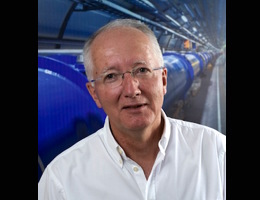
Editorial - Science in a fragmenting World
For the first time since the fall of the Berlin Wall, faults and fractures are opening up in the political landscape of Europe which pose severe threats to science and scientific cooperation. The Brexit is only the most spectacular development to this day; populist, isolationist, and anti-European movements are on the rise in other European countries, or are in power already.
[read more]
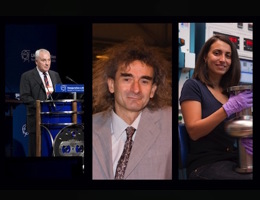
EPS Accelerator Group announces 2017 prize-winners
The European Physical Society Accelerator Group (EPS-AG) has announced the winners of 2107 Accelerator Prizes, to be presented on 18 May during the International Particle Accelerator Conference, IPAC’17, which will take place in Copenhagen (DK).
[read more]
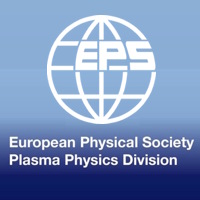
Winners of the 2017 EPS Alfvén and Plasma Innovation Prizes
The 2017 Alfvén prize is awarded to Ksenia Aleksandrovna Razumova, from the Kurchatov Institute (Moscow, Russia). The 2017 Innovation award is going to Michel Moisan, from the Université de Montréal (Québec, Canada).
[read more]
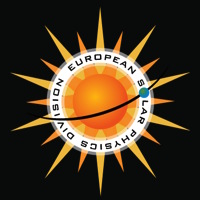
European Solar Physics Division (ESPD) – Nominations sought for ESPD prizes
The European Solar Physics Division (ESPD) has decided to raise awareness in the work and achievements of the European and international solar physics community by establishing three (3) distinct prizes: a PhD Τhesis Prize, a Postdoc (Early Career Researcher) Prize and Senior Prize. Nominations are invited for each of them.
[read more]
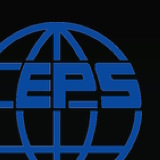
Meeting of selected EPS Member Societies in Bucharest
During a session of the EPS Executive Committee, the Committee of European Integration of the European Physical Society (CEI-EPS) organised a meeting of physical societies of the EPS that are on the periphery of the European Union, or are members of the Balkan Physical Union.
[read more]
With Technical Installations Underway, the European Spallation Source Looks Toward Commissioning and Early Science
In February, the foundation work for all accessible areas of the European Spallation Source (ESS) facility in Lund (SE) was declared complete. More than 6,000 pilings of varied composition, diameter and depth have been hammered into the bedrock of southern Sweden, creating a foundation designed to protect the linear accelerator, target station, neutron beamlines, and the array of more than two dozen sensitive instruments from all conceivable seismic and man-made interruptions.
[read more]
The European gravitational interferometer VIRGO, on the road again
The dedication ceremony for the second-generation European gravitational interferometer was held on Monday the 20th of February 2017. The ceremony took place at the European Gravitational Observatory (EGO) in Cascina PI, Italy, the site at which Advanced Virgo is located. The ceremony took place in the presence of the presidents of the institutions that have funded the project (INFN, IN2P3, Nikhef) and of representatives of the governments of the six nations whose laboratories are members of the Virgo Collaboration.
[read more]
Inauguration of the New Scientific Managing Director of GSI and FAIR
At a ceremony held in Darmstadt, Professor Paolo Giubellino was introduced as the first joint Scientific Managing Director of GSI Helmholtzzentrum für Schwerionenforschung GmbH and Facility for Antiproton and Ion Research in Europe GmbH (FAIR GmbH). The festive inauguration ceremony was held at the Darmstadtium science and congress centre in Darmstadt (DE). The guests included numerous politicians, university representatives, and partners from the organisation’s international scientific collaborations.
[read more]
Progress on Belle II: magnets in Japan and tests at DESY
The Belle II project at the Japanese research centre KEK is making great strides forward. The detector is being upgraded in international collaboration and must be tested thoroughly before it start taking data with the similarly upgraded SuperKEKB accelerator.
[read more]
February 11th, the UN International Day of Women and Girls in Science
On 22 December 2015, the General Assembly of the United Nations adopted a resolution to establish an annual International Day to recognise the critical role that women and girls play in science and technology communities.
[read more]
The International Particle Physics Outreach Group (IPPOG)
The International Particle Physics Outreach Group (IPPOG) is a network of scientists, science educators and communication specialists working across the globe in informal science education and outreach for particle physics. Particle physics is the science of matter, energy, space and time.
[read more]
Joint SPS-ÖPG Annual Meeting in Geneva, 21-25 August 2017
The next annual meeting, hosted by CERN, will take place from 21 – 25 August 2017 in Geneva (CH) at two different locations.
[read more]
Dieter Meschede to be President of the German Physical Society from 2018 to 2020
The Council of the DPG unanimously elected the Bonn Professor of Physics Dieter Meschede as the DPG’s next President for the term of office from 2018.
[read more]
EPS Executive Committee and Staff activities February 2017
The EPS works to support its members. Find below the list of activities of the EPS Executive Committee and staff last month:
[read more]
GENERA Gender in Physics days in Europe
In general, the physics research community fosters the assumption of being gender neutral. However, despite this, the under-representation of women in physics research is a long-standing and persistent issue.
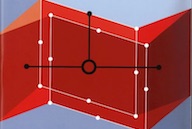 [read more]
[read more]